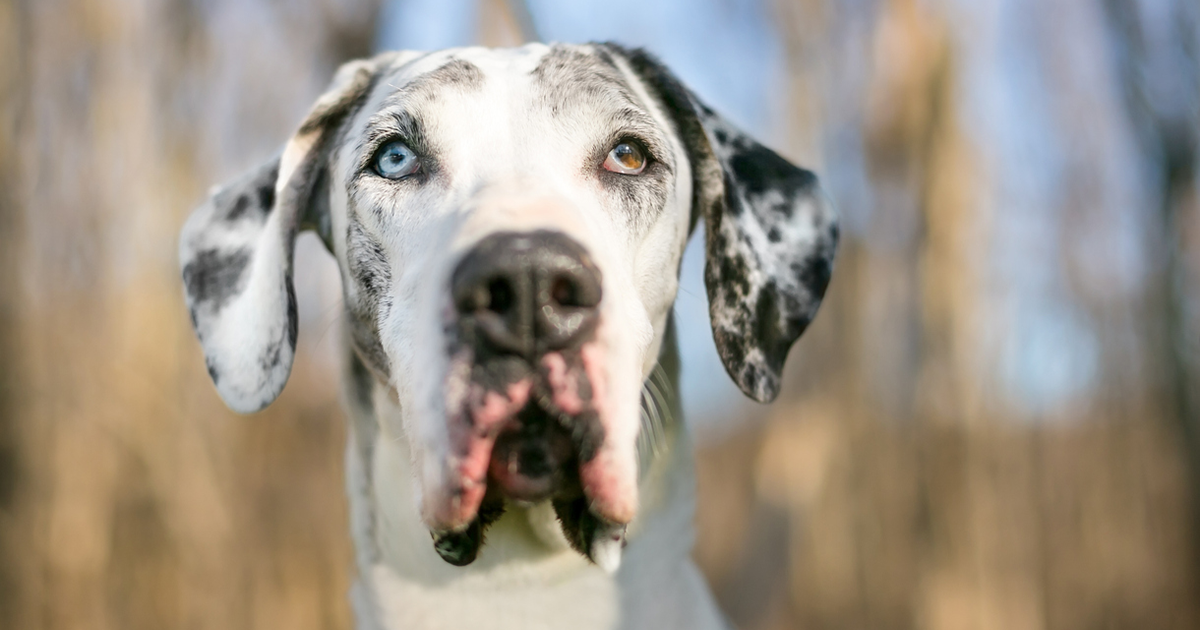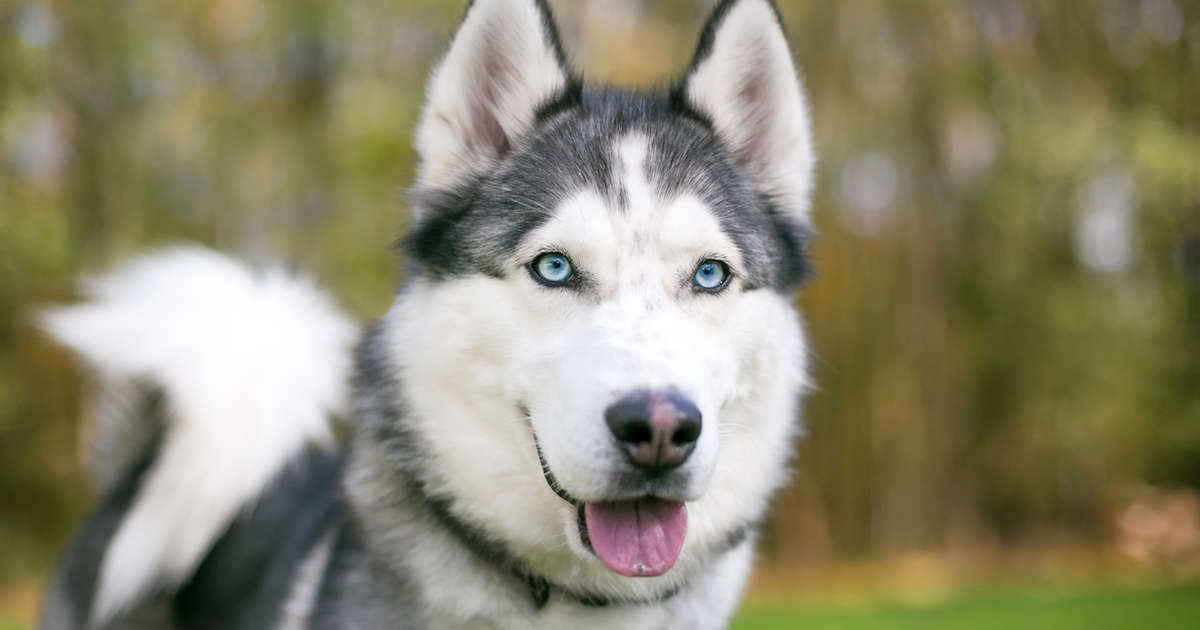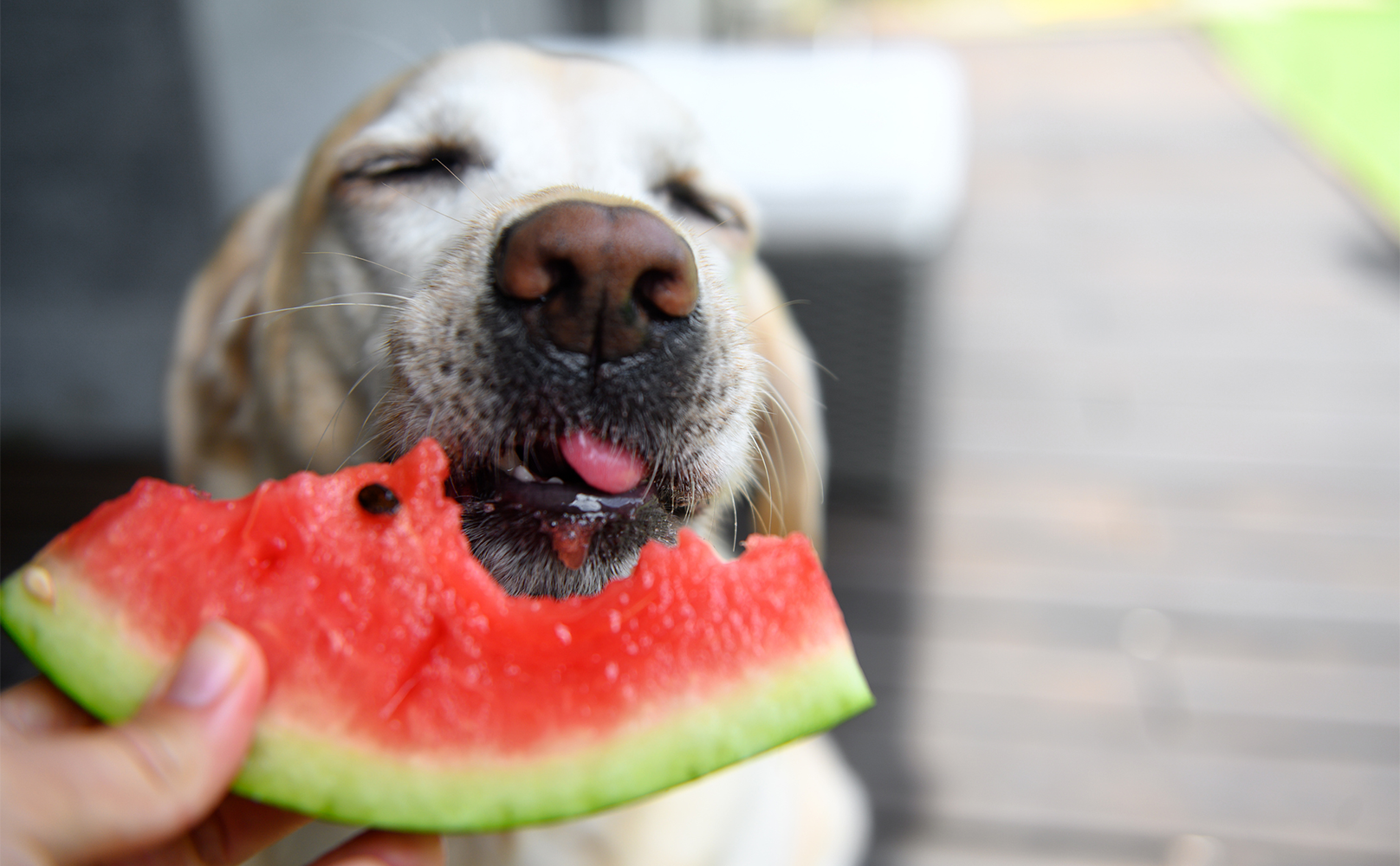Dr. Katy Nelson is an associate veterinarian at the Belle Haven Animal Medical Centre in Alexandria, VA, as well as the host and executive producer of “The Pet Show with Dr. Katy” on Washington DC’s News Channel 8.
So you walk into your veterinarian’s office for your dog’s annual exam and you’re feeling fine. You’re within a few weeks of the due date of the necessary shots, you were on time for the appointment (almost), and you even remembered to bring the stool sample that they inevitably ask for (ew)! Score! All seems to being going well, when all of the sudden the vet says the ugliest word in the English language about your dog: overweight.
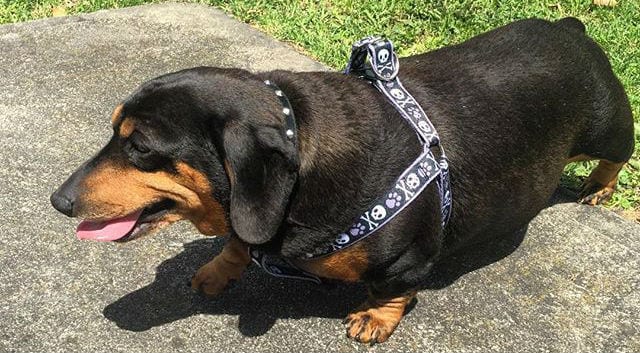

You develop tunnel vision. The room spins. Surely you heard her wrong? Fifi isn’t FAT, she’s just FLUFFY! She needs a haircut. It’s right after the holidays. You hurt your ankle and couldn’t take her for enough walks lately. Your husband/son/daughter/mother-in-law has clearly been feeding her too many treats lately. She certainly is NOT overweight. Besides, her neck rolls are so velvety, and it’s so cute when she sploots on the floor and you can see the rolls on her thighs. Isn’t it? She’s healthy, right?
Well, unfortunately, the answer to that last question is likely “no.”
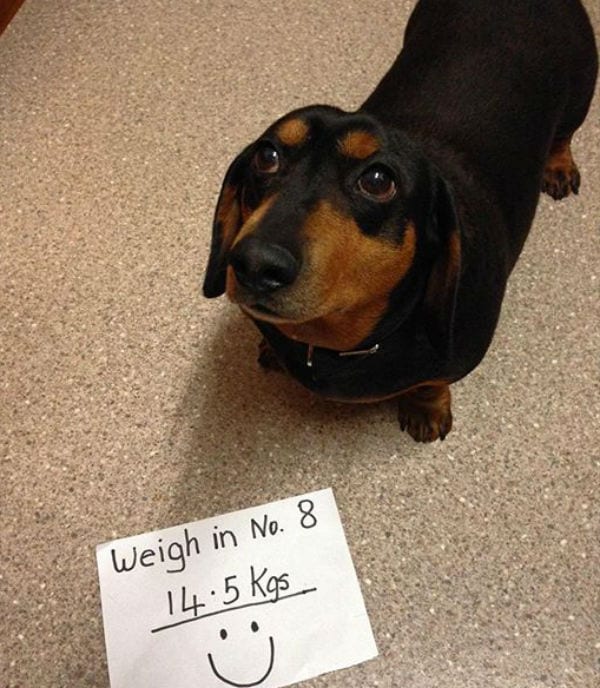

For many years we looked at fat cells as these benign little storage depots for excess calories. Now, however, we know that those fat cells are actually more like hormone factories, secreting over 50 different types of proteins and chemicals – including leptin, tumor necrosis factor alpha and numerous other types of cytokines. Cytokines are a line of proteins that trigger inflammation, can lead to insulin resistance, and are extraordinarily impactful on musculoskeletal and cardiovascular cells.
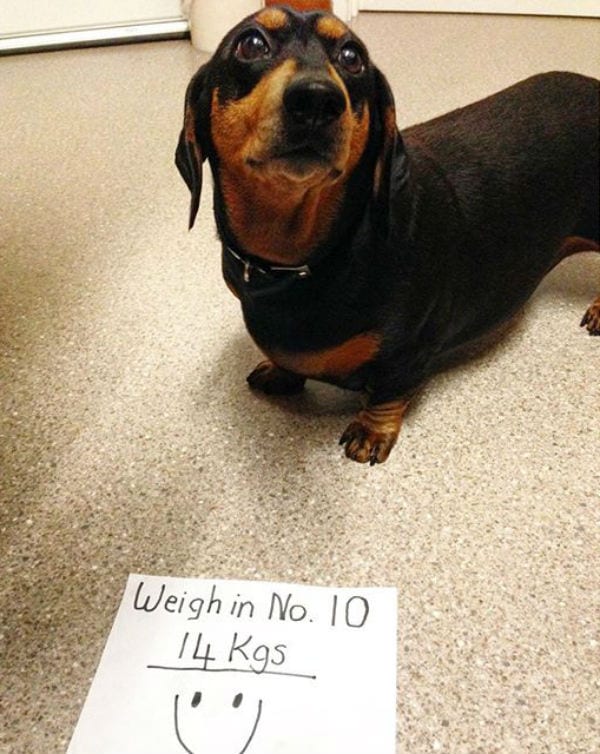

As the number of fat cells increase, so does the production of inflammatory factors throughout the entire body, leading to an increased risk of heart disease, diabetes, osteoarthritis, and even cancer. None of those are cute.
[bp_related_article]
This is why I’ve banned words like chunky, portly, big-boned, hefty, stocky, chubby, and heavyset from my exam room. We don’t discuss cancer in such syrupy terms, why would we refer to such a serious metabolic inflammatory disease like obesity that way? Idioms like these monumentally diminish the severity of the impact of excess fat in our dog’s bodies.
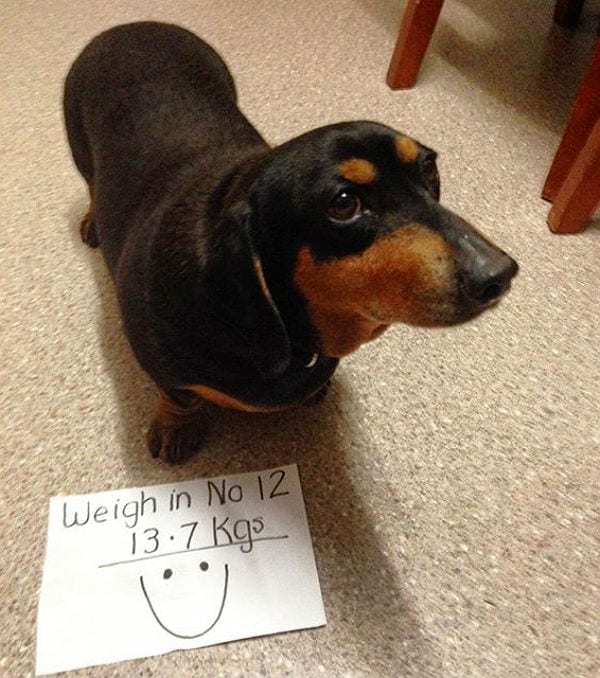

It can be an uncomfortable conversation on both sides, believe me. Over 65% of Americans are overweight, and our pets are following suit. According to the Association for Pet Obesity Prevention (APOP), over 57% of dogs and 53% of cats are overweight. And in a survey conducted by APOP, among pets that veterinarians ultimately classified as obese, an astounding 93% of dog owners and 88% of cat owners classified their pets’ weight as normal.
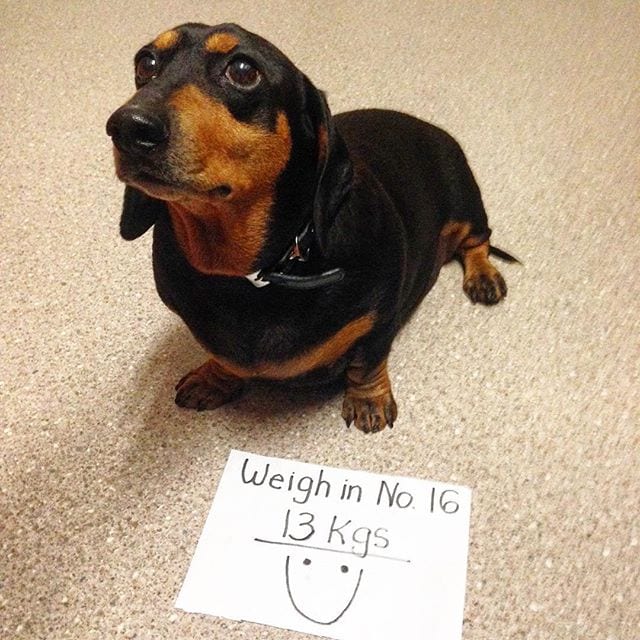

So pet owners out there, please hear this: when your veterinarian is discussing your pet’s weight with you, please do NOT be offended. They are NOT calling you a bad pet parent. They are not asking you to make excuses for your pup’s physique. This should be no more offensive to you personally than your vet telling you your pet has a dysfunctional valve in her heart, or that her cruciate ligament is torn.
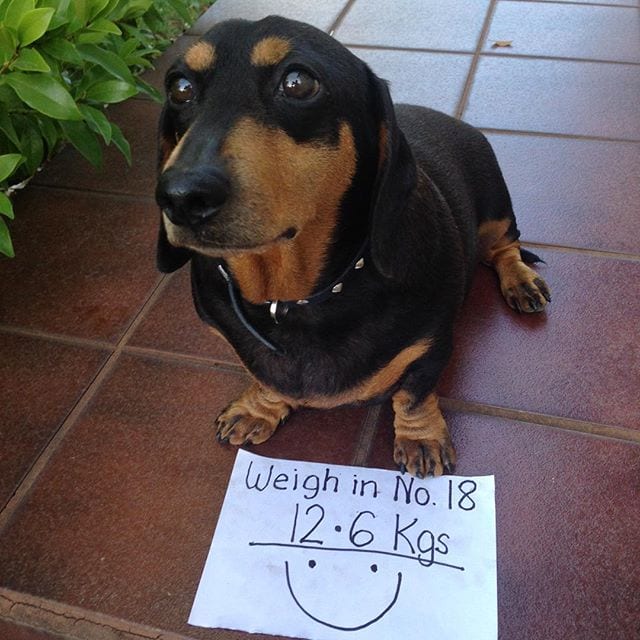

Obesity is a diagnosis. Please listen just as hard to this discussion as you would to any other diagnosis, and work together with your veterinarian to create a treatment plan. You may just end up with many more happy years with your beloved…and isn’t that what we all want?
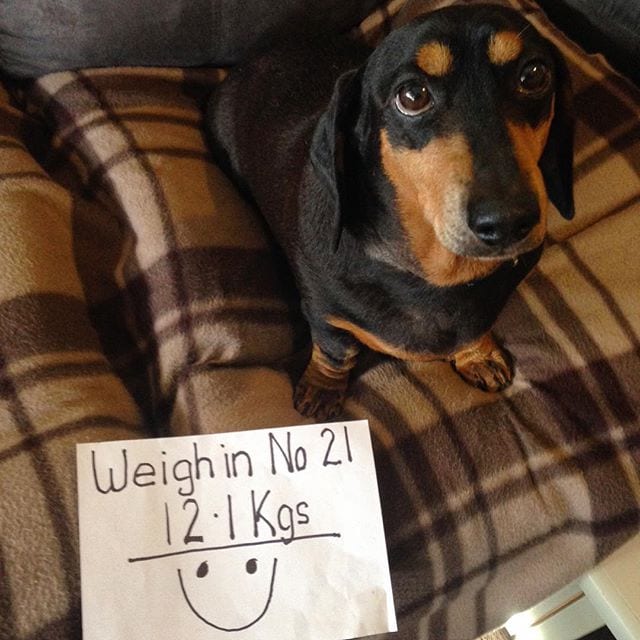

A long-term study was conducted with 48 Labrador Retrievers from 7 different litters divided into 2 dietary groups. One group was fed an adult maintenance diet, the second group was fed the same diet at 75% of the amount. The dogs in the restricted group lived an average 1.8 YEARS longer, weighed less, had better body condition scores (similar to BMI in people) and had longer delay to treatment of chronic disease. This is powerful evidence that proper weight has an impact not just on quality of life, but longevity itself.
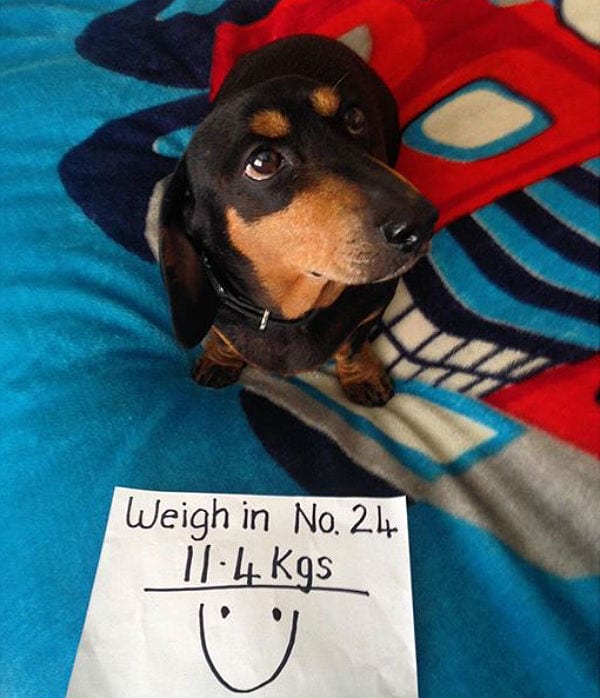

This is why the “weight discussion” with your veterinarian is so very important. If you feel like your pet may have a weight problem, or if you just can’t tell, have her assessed by your veterinarian. She will assign a body condition score, and if your pet is indeed overweight, discuss any workup that may be required, a daily caloric goal, an exercise program, which diet is best for your individual pup and whether any nutritional supplementation should be instituted.
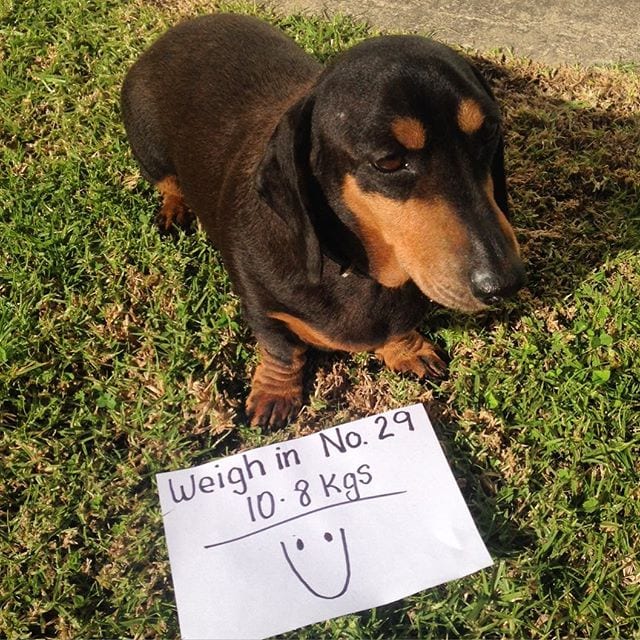

Take the time to re-examine your relationship with your pup. Are you constantly rewarding/bribing with treats? Do you always add just a few extra kibbles to her bowl because she’s “such a good girl?” Maybe instead of those indulgences, you can indulge her in different ways. How about a little window shopping together? Or a scenic ride in the car (properly secured, of course)? Or a good old-fashioned roll in the grass? Remember that the greatest treat you can ever give your pet is your time… and that is completely calorie-free.


The bottom line is, if you want your pet to live a long, healthy and happy life, you can’t afford not to listen when your vet talks about your portly Pug, your rotund Retriever, your chunky Chow Chow, your bulging Bulldog, your swollen Sheltie or your corpulent Corgi (I know, I promised not to do that).
“Killing with kindness” is, as it turns out, a real thing. The kindest thing you can possibly do for your dog is to keep her slim and trim in order to make the most of your years together.



